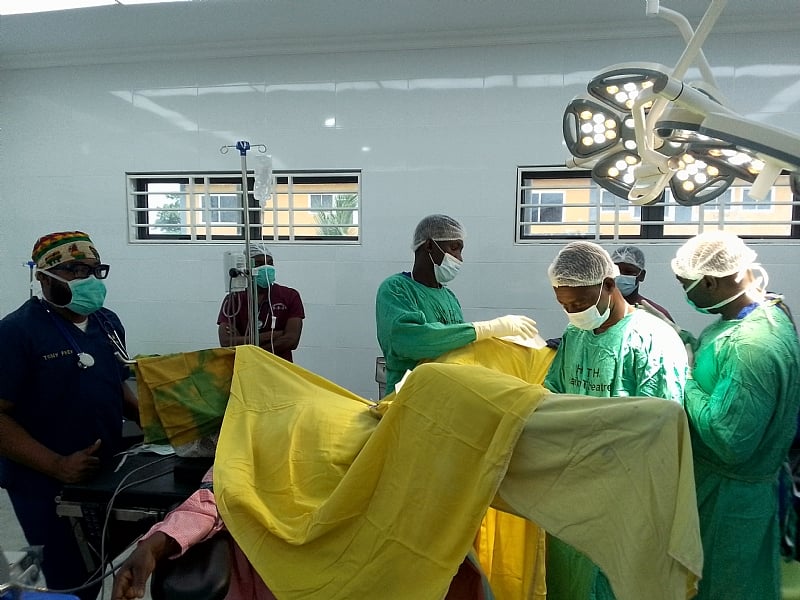The United Nations Population Fund (UNFPA) has provided free obstetric fistula surgeries to six women in the Volta Region as part of events commemorating the International Day to End Obstetric Fistula, observed globally on May 23.
The initiative is part of broader efforts by the UNFPA, the World Health Organization (WHO), and other partners to eliminate fistula in Ghana by 2030.
Obstetric fistula is a severe childbirth injury often caused by prolonged or obstructed labour, resulting in a hole between the birth canal and bladder or rectum. This leads to chronic incontinence, leaving affected women physically incapacitated and socially isolated.
To combat the condition, five hospitals across Ghana have been designated to offer free fistula repair surgeries. These facilities include Komfo Anokye Teaching Hospital in Kumasi, Ho Teaching Hospital in the Volta Region, Tamale West Hospital in the Northern Region, Mercy Women Catholic Hospital in the Central Region, and the Upper West Regional Hospital.
Dr. Ochan, UNFPA Country Representative, highlighted the devastating impact of the condition. Many women with fistula lose their babies during delivery and are subsequently abandoned by their families. “These women are often forced into isolation, denied basic social roles such as cooking or eating with others, and left to live in shame,” he said.
The campaign is part of a nationwide initiative led by the Partnership to End Fistula in Ghana (PEFIG), which aims to support survivors by coordinating free surgeries across multiple locations. Contact numbers for the designated hospitals include:
Komfo Anokye Teaching Hospital, Kumasi: 057 020 2800
Ho Teaching Hospital, Volta Region: 027 939 0179
Tamale West Hospital, Northern Region: 027 701 3270
Mercy Women Catholic Hospital, Central Region: 027 523 2127
Upper West Regional Hospital: [Contact not listed in the original text]
Dr. Ochan also commended the Ghanaian government, Ministry of Health, and Ghana Health Service for progress made in maternal health, citing that 87–88% of births now occur in health facilities under the care of skilled professionals.
Despite this progress, maternal health challenges persist. Ghana’s maternal mortality rate remains high—around 310 deaths per 100,000 live births. For every woman who dies, 20 others suffer life-altering complications, with obstetric fistula among the most debilitating.
Katherine Attoh, Technical Officer for Reproductive, Maternal, Newborn, and Child Health at WHO Ghana, reaffirmed the organization’s support for the campaign and praised Ho Teaching Hospital for effectively mobilizing patients and carrying out the surgeries.
“Maternal health is critical if we are to achieve health for all; leaking urine after delivery is not normal, and care is available,” she emphasized, urging greater investments and cross-sector partnerships to address obstetric fistula.
Madam Attoh also highlighted the need to eliminate the stigma that surrounds the condition. “A woman develops complications from something as natural as childbirth — there’s no reason for her to be stigmatized,” she said. She called on the public to support affected women and encourage them to seek treatment, stressing that awareness, compassion, and timely medical care are key to ending the suffering caused by obstetric fistula.


